Leading change
A country ‘lost in transition’?
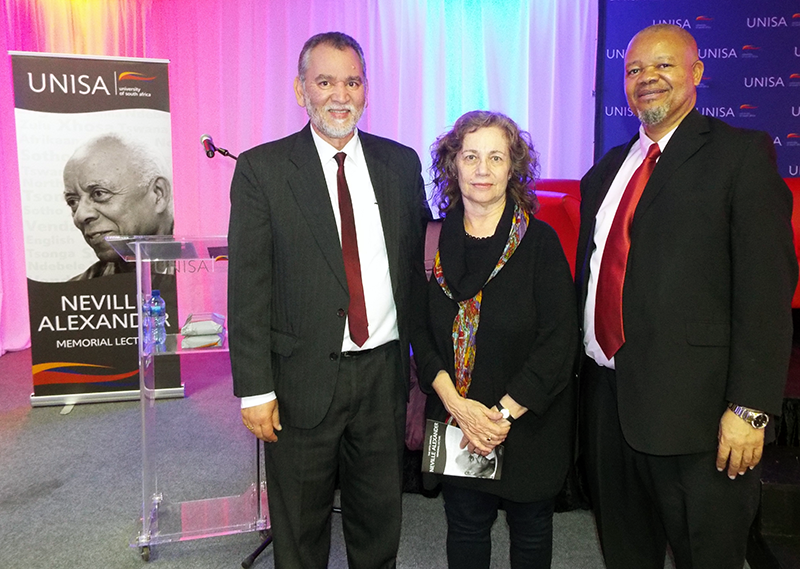
Dr Keith Jacobs (Regional Director: Western Cape), Karen Press (Neville Alexander’s life partner), and Prof. Mandla Makhanya (Principal and Vice-Chancellor: Unisa)
“The national question is a perennial challenge in Africa in general and South Africa in particular. It haunted colonialism (as the native question), African nationalism and decolonisation (as a racial and colonial question), and ‘post-colonialism’ (as nation building and state making). It has re-emerged today as constitutive element of epistemological decolonisation. The national question speaks to the difficult aspects of political, economic, social, ideological, and epistemic change.”
Professor Sabelo Ndlovu-Gatsheni, Director of Scholarship in Unisa’s Change Management Unit, explored the idea of South Africa as a national question from a decolonial perspective when he delivered the sixth annual Neville Alexander Memorial Lecture on 6 October 2017 in Cape Town.
The country was still struggling to transcend the racial categories and identities constructed by apartheid, concluded Ndlovu-Gatsheni. “South Africa has delivered a democracy of a property-less people and such a democracy is unsustainable. We have witnessed a South Africa where those who are experiencing various forms of hardships, particularly the unemployed and the working poor, have to engage in riots or demonstrations so as to be heard.”
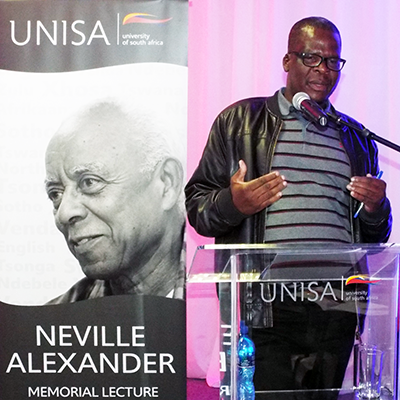
Prof. Sabelo Ndlovu-Gatsheni (Director of Scholarship: Change Management Unit, Unisa) delivered the sixth annual Neville Alexander Memorial Lecture.
He queried whether the idea of an inclusive South Africa was still in the making, whether it was incomplete, or whether it was proving very hard to resolve. What was clear, he pointed out, was that the country seemed to be ‘lost in transition’ to the extent of provoking struggles from below for life as well as intra-elite/class struggles from above for power and consumption.
Dr Shahieda Jansen, Deputy Director of Academic Support and ICT, Unisa Western Cape, provided the response to the lecture, while Professor Patrick Mafora, Director of Regional Services at Unisa, chaired a lively open discussion. Xhanti Ngoqo, Deputy Secretary of the Western Cape RSRC, delivered the vote of thanks and closure.
In his opening address, Professor Mandla Makhanya, Principal and Vice-Chancellor of Unisa, said that the writings and ideology of Neville Alexander grew increasingly prescient and relevant in the current environment.
“In our quest to shape our own African identity let us not forget the voices of African—South African—intellectuals such as Neville Alexander, whose struggle ‘pedigree’ and understanding of the ‘national question’ far surpasses that of so many of the voices that appear to enjoy currency right now, and whose writing should form a core part of our intellectual engagement and curricula.”
*By François Louw and Sharon Farrell
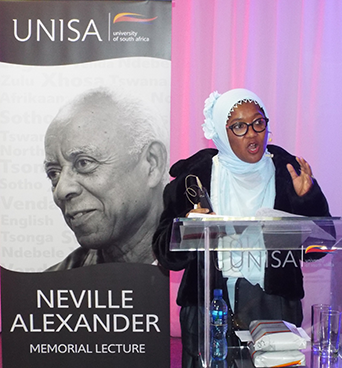
Dr Shahieda Jansen (Deputy Director: Academic Support and ICT, Unisa Western Cape), provided the response to the sixth annual Neville Alexander Memorial Lecture.
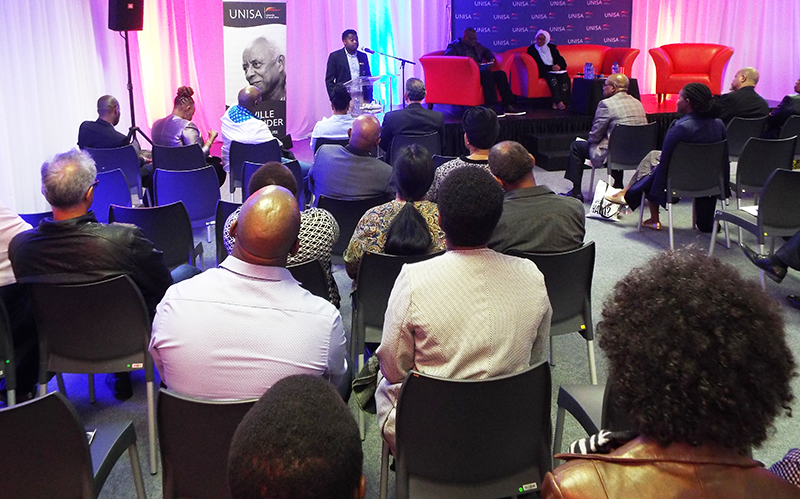
Xhanti Ngoqo (Deputy Secretary: Western Cape RSRC) did the thanks and closure.
Publish date: 2017-11-08 00:00:00.0


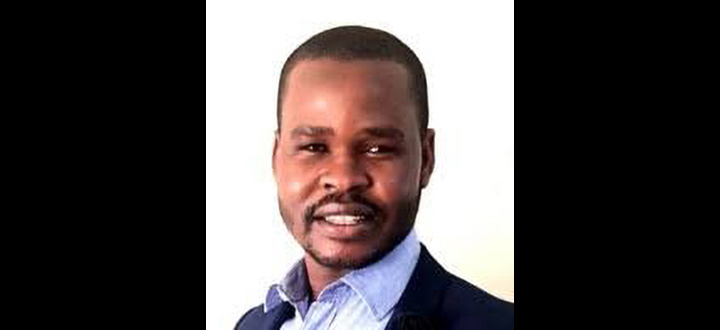 Mental health among men in the workplace needs more attention
Mental health among men in the workplace needs more attention
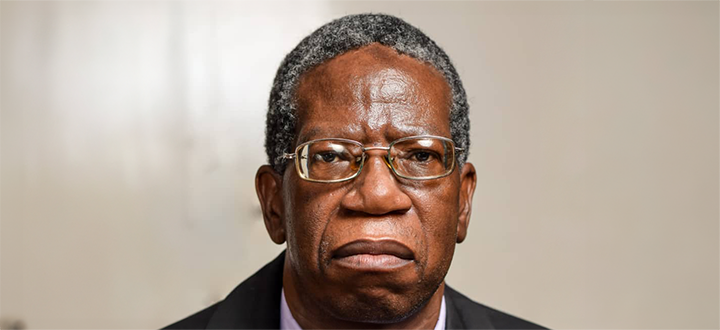 "I owe everything to Unisa and my late supervisor's priceless mentoring"
"I owe everything to Unisa and my late supervisor's priceless mentoring"
 Majikijela - a queer scholar raising homosexuality awareness through his work
Majikijela - a queer scholar raising homosexuality awareness through his work
 Unisa and Inqaba Biotec unveil groundbreaking DNA research platform
Unisa and Inqaba Biotec unveil groundbreaking DNA research platform
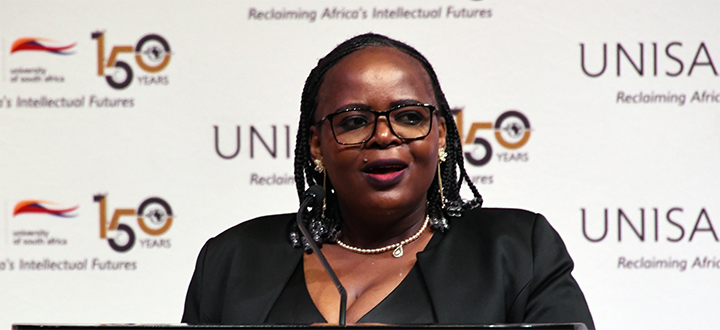 College of Law appoints esteemed scholar as executive dean
College of Law appoints esteemed scholar as executive dean